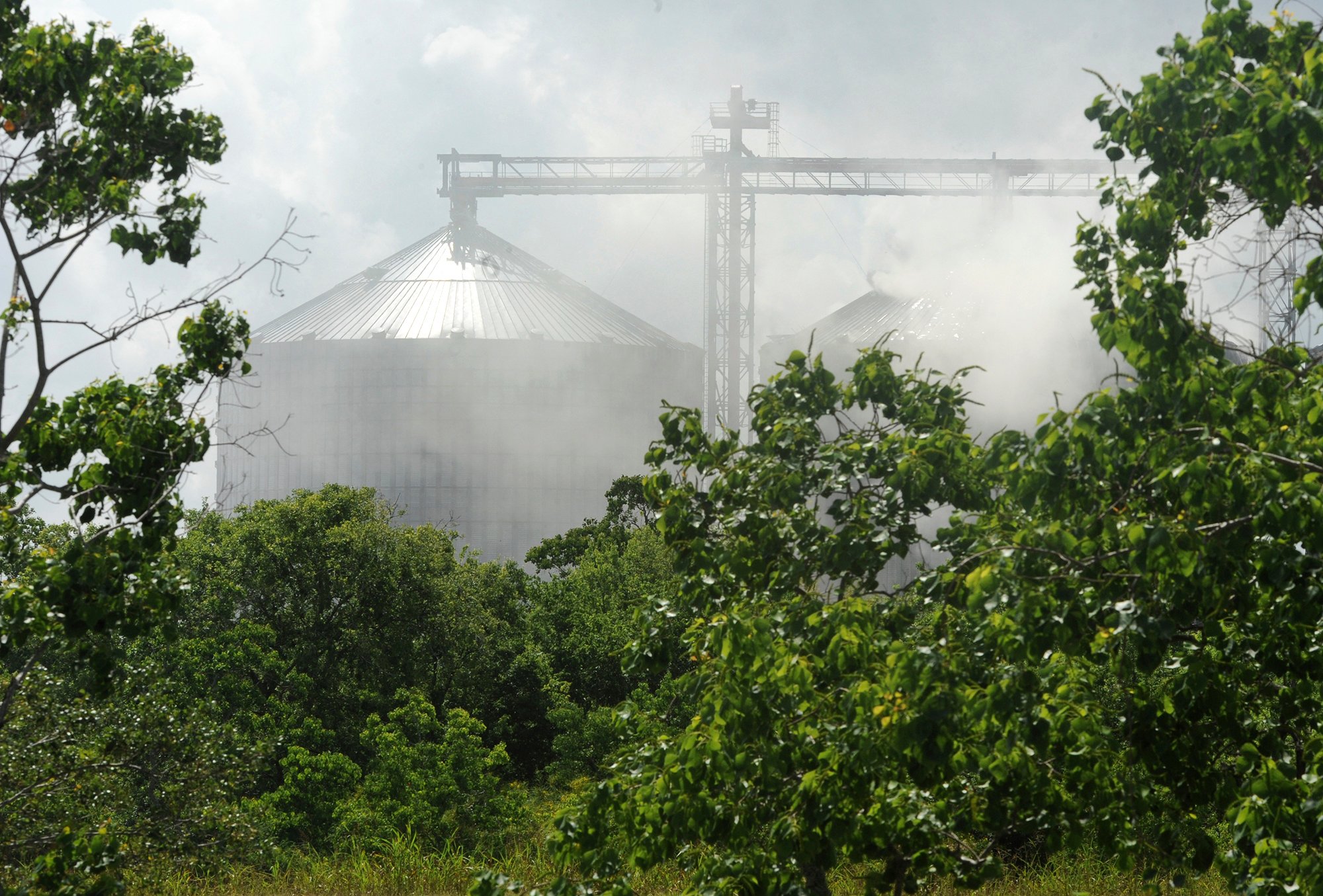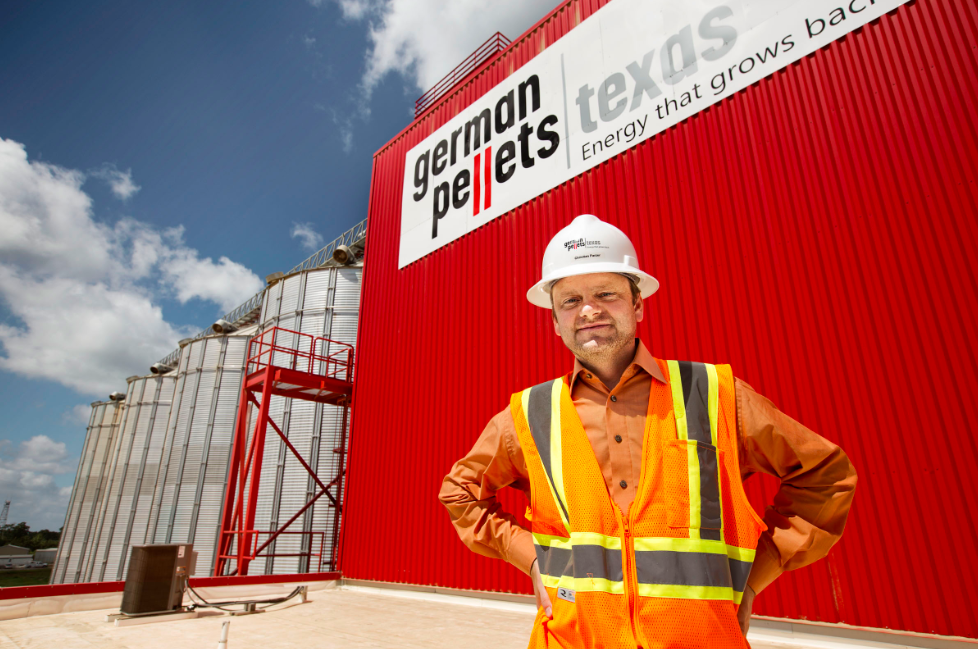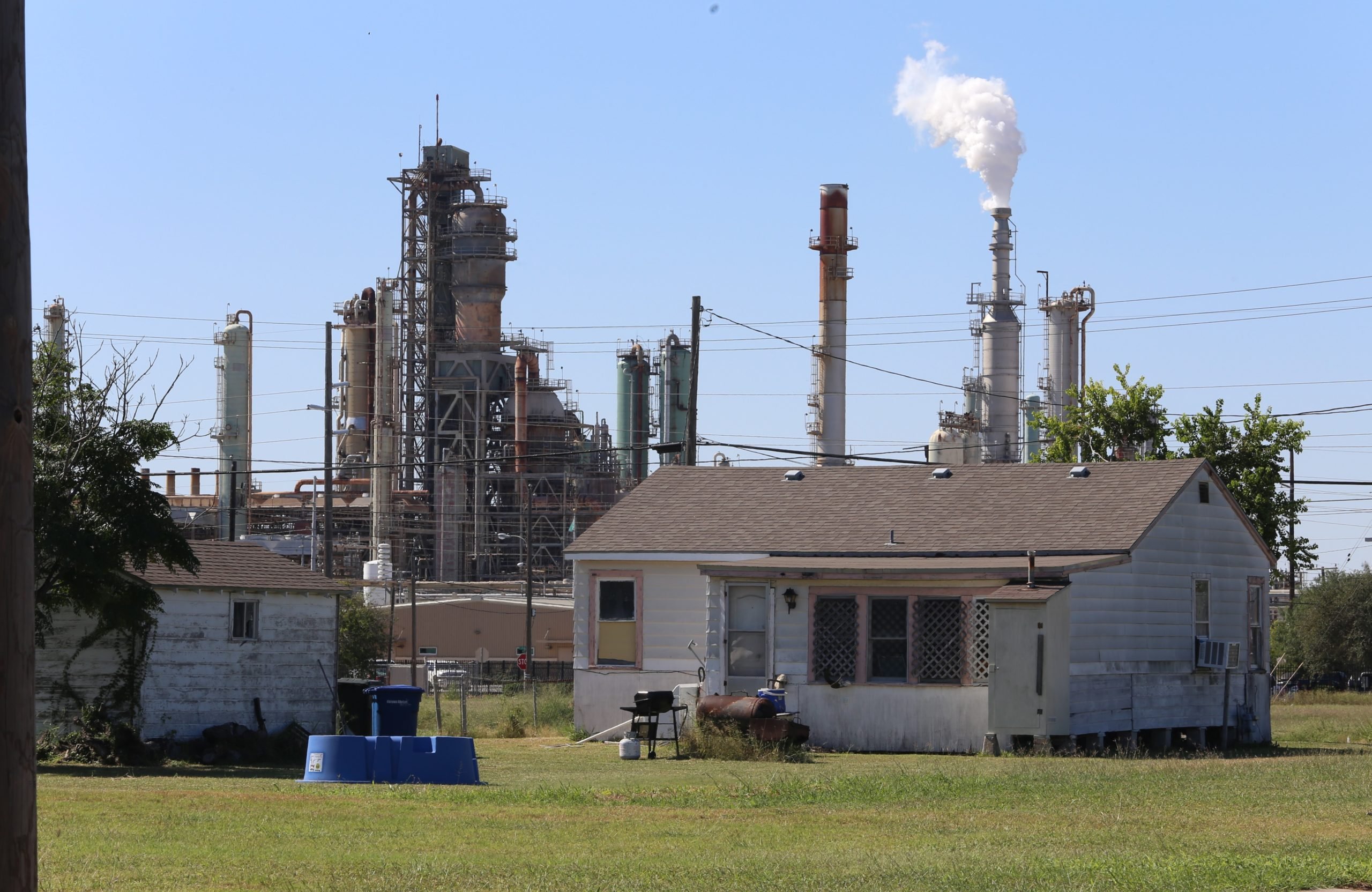
Industrial Wood Processor Accused of Making East Texans Sick May Get to Pollute Even More
Residents near German Pellets facilities in Woodville and Port Arthur allege that air pollution and fires have made them sick, but the state regulatory agency has done little to help, the Sierra Club says.

In late 2014, Lisa Sanchez and her husband, Tony, sold their 13-acre ranchette in The Woodlands, where they lived in a single-wide trailer and raised rescue horses, and moved into their dream home near Woodville, a rural community in Deep East Texas. Their new home was 4,000 square feet, with an in-ground pool and a lighted basketball court. “We prayed and prayed [for the home]. It was a dream the Lord gave us,” Lisa said. The Sanchezes had noticed the hulking German Pellets facility about 1,000 feet from their property. They learned that the plant compresses ground-up trees into pellets for wood-burning furnaces, but they didn’t think much about it, she said.
But then, in 2015, Lisa started getting sick. She developed respiratory problems that grew into asthma and was prescribed prednisone, a steroid that treats inflammation. She said the facility spewed a fine soot that settled into the pool and inside their home when doors and windows were left open. Lisa began to cough up dark yellow mucus. “I had never been so sick in my life,” she said, adding that she worried her six children would also develop breathing problems from swimming in the pool and playing basketball when they came to visit.
Lisa suspects her health woes were connected to the pellet plant, though she doesn’t have proof. “We never knew that company would become my worst nightmare,” she said.

The Woodville plant is permitted by TCEQ to expel 64 tons of volatile organic compounds per year, gases that when combined with sunlight create ground-level ozone. Dizziness, difficulty breathing and other health problems can result. However, according to an internal audit conducted by German Pellets in 2014, the company had far exceeded its air pollution limit — it had actually released 580 tons of the harmful gases, about 10 times the allowable level.
Despite the audit, TCEQ has done virtually nothing to punish German Pellets, a report released last week by the Sierra Club’s Lone Star chapter states. Instead, regulators are now considering simply raising the company’s pollution cap to match its current pollution levels.
In an email sent Thursday, TCEQ spokesperson Andrea Morrow confirmed that German Pellets had conducted an audit showing noncompliance with permit provisions. She also said that “TCEQ ensures all violations disclosed under this program are corrected,” requiring the company to file a new inventory of its pollution and provide quarterly updates to the agency.
“We never knew that company would become my worst nightmare.”
Eighty miles southeast, at the Port of Port Arthur, a massive fire broke out at a German Pellets storage silo in April 2017, smoldering for two months. A group of 31 plaintiffs claimed in an October lawsuit against the company that smoke from the fire caused persistent respiratory problems and insomnia. In a January court filing, German Pellets denied most of the allegations and called others “too vague and ambiguous to frame a response.” TCEQ has assessed a $15,000 fine for nuisance odors created by the fire. Of that amount, $3,000 has been deferred, and a settlement is still being negotiated between the agency and German Pellets, Morrow said.
TCEQ has a long history of failing to hold industrial polluters to account. According to an analysis by Environment Texas, the agency failed to punish offenders in 97 percent of air pollution cases. The Observer previously reported that the regulatory agency doles out harsh fines to small business owners while letting industrial polluters off with a slap on the wrist.
German Pellets is planning to get back into business in East Texas. The company has announced that it will resume operations in Port Arthur, and it’s asking TCEQ to approve an air pollution application for the Woodville facility that will allow it to match its past releases. German Pellets did not return a call for comment on Wednesday.
TCEQ failed to punish offenders in 97 percent of air pollution cases.
The Lone Star Chapter of the Sierra Club has challenged the application on the grounds that TCEQ should force the company to install air pollution controls before the permit is approved. In a June letter to TCEQ, the environmental group called on the agency to require German Pellets to install devices on its hammermills, pellet presses and pellet coolers that could curb 95 percent of the plant’s emissions. The group notes that two similar pellet facilities — one in South Carolina and one in North Carolina — have applied to use the technology.
Neil Carman, the clean air program director at the Lone Star chapter and a former air quality inspector for TCEQ, predicts that a contested permit hearing will be convened late this summer.
In Woodville, Lisa said she never had serious respiratory issues before living near the plant. Her request for TCEQ to investigate fell on deaf ears, she said. “The investigator, she said what was coming out of the plant was just steam. She didn’t even come through the gate, and as far as I know they didn’t sample anything. I was very disappointed in the TCEQ.”
Lisa’s health woes got a temporary reprieve last year, after the Woodville plant briefly shut down amid financial trouble. But she still uses Symbicort, an asthma medication, every morning, and last month she was diagnosed with bronchitis. As we spoke on the phone, she coughed intermittently. “I still have problems whenever I get to talking too much. And the drainage. It’s gotten to be a normal thing now,” Lisa said.


